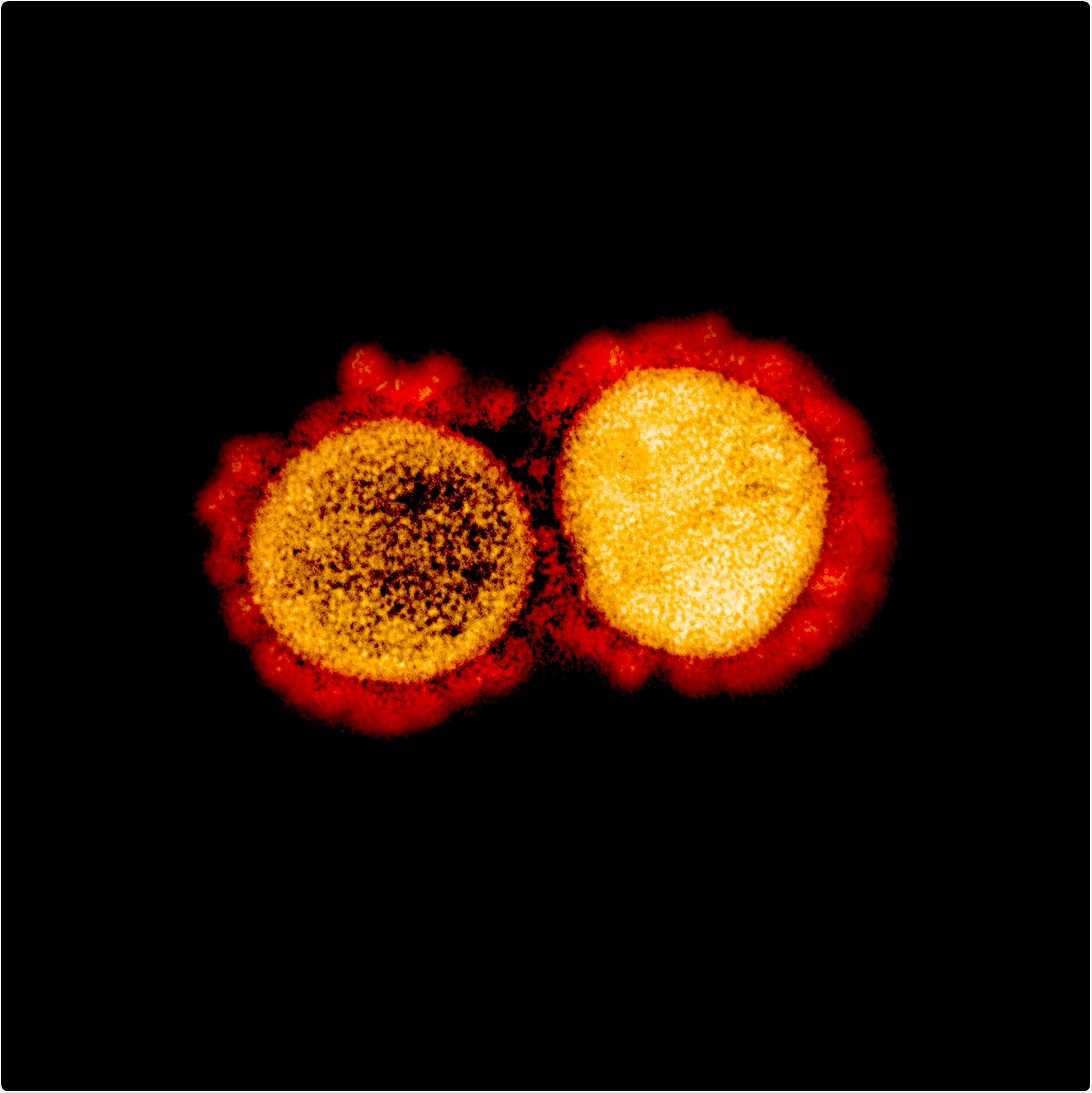As the severe acute respiratory syndrome coronavirus 2 (SARS-CoV-2) pandemic rages on, several virus variants have been emerging with mutations in the structural and non-structural proteins. The SARS-CoV-2 spike protein binds to the host angiotensin-converting enzyme 2 (ACE2) receptor, facilitating viral entry into the host cell. Studies have shown many different mutations in the spike protein over the last twelve months.
The first significant spike protein variant emerged with a mutation from aspartic acid (D) to glycine (G) at position 614, leading to increased viral fitness, replication, and binding to ACE2 and conformational changes within the protein. Several other variants have emerged over the past few months, raising concerns about changes to transmission, nature of the disease, and viral fitness.
When SARS-CoV-2 infects humans, our immune system rapidly responds against the viral spike protein. The receptor-binding motif in the spike protein interacts with the ACE2 receptor and is a key target of neutralization for antibodies. Longitudinal studies have found that the antibodies to the spike protein can remain in the body for at least a year following infection.
The mRNA-1273 vaccine encodes the SARS-CoV-2 spike protein and triggers a potent neutralizing antibody response to the virus that lasts for several months. The B.1.351 variant originated in South Africa has three mutations in the receptor-binding domain and many other mutations in the spike protein, all of which may influence viral binding to the ACE2 receptor and viral resistance to neutralization by antibodies.
Comparing antibody binding and viral neutralization against two different SARS-CoV-2 variants
Researchers from the US recently compared antibody binding and viral neutralization against 2 SARS-CoV-2 variants that emerged in different parts of the world. The researchers used sera from spike mRNA vaccinated and naturally infected individuals against a circulating B.1 variant and the emerging B.1.351 variant. The study is published on the preprint server bioRxiv*.
EHC-083E (the B.1 variant) belongs to the B.1 PANGO lineage and was isolated in March 2020 from a nasopharyngeal swab of a patient in Atlanta, GA. This variant has the D614G mutation in the viral spike protein. The B.1.351 variant was isolated in November 2020 from an oropharyngeal swab of a patient in KwaZulu-Natal, South Africa. This variant of the virus contains amino acid mutations (L18F, D80A, D215G) within the viral spike protein and deletion at positions 242-244 (L242del, A243del, and L244del), K417N, E484K, N501Y, and D614G.
Neutralizing antibodies for B.1.351 variant are produced early in the infection phase
The researchers observed decreased antibody binding to the B.1.351-derived receptor binding domain of the SARS-CoV-2 spike protein and neutralization power against the B.1.351 variant in sera from both infected and vaccinated individuals. Their longitudinal convalescent COVID-19 cohort assessed the impact on antibody binding to the receptor-binding domain and neutralization across the SARS-CoV-2 variants. Interestingly, most convalescent COVID-19 individuals showed less impact on neutralization against the B.1.351 variant at longer durations post-infection. This showed that neutralizing antibodies for the B.1.351 variant is produced early during infection and last for several months.
Most SARS-CoV-2-infected individuals showed binding and neutralizing titers against the B.1.351 variant in both acute and convalescent sera
According to the observations, most sera samples from acute and convalescent COVID-19 individuals showed antibody binding to the B.1.351-dervied receptor binding domain. Most samples also showed a neutralizing capacity for the B.1.351 variant, and the effector functions of these neutralizing antibodies might contribute to SARS-CoV-2 infection control.
To summarize, although decreased by a few folds, most SARS-CoV-2 infected individuals showed binding and neutralizing titers against the B.1.351 variant in acute as well as convalescent sera. Moreover, all mRNA-1273 vaccinated individuals still maintained viral neutralization. These findings agree with previous notions that natural infection- and vaccine-induced immunity can offer protection against COVID-19 in the context of the SARS-CoV-2 B.1.351 variant.
“Our results show that despite few fold decrease, most infected individuals showed binding and neutralizing titers against the B.1.351 variant in acute and convalescent sera, and further, all mRNA-1273 vaccinated individuals still maintained neutralization.”
*Important Notice
bioRxiv publishes preliminary scientific reports that are not peer-reviewed and, therefore, should not be regarded as conclusive, guide clinical practice/health-related behavior, or treated as established information.
- Reduced binding and neutralization of infection- and vaccine-induced antibodies to the B.1.351 (South African) SARS-CoV-2 variant, Venkata Viswanadh Edara, Carson Norwood, Katharine Floyd, Lilin Lai, Meredith E. Davis-Gardner, William H. Hudson, Grace Mantus, Lindsay E. Nyhoff, Max W. Adelman, Rebecca Fineman, Shivan Patel, Rebecca Byram, Dumingu Nipuni Gomes, Garett Michael, Hayatu Abdullahi, Nour Beydoun, Bernadine Panganiban, Nina McNair, Kieffer Hellmeister, Jamila Pitts, Joy Winters, Jennifer Kleinhenz, Jacob Usher, James B. O’Keefe, Anne Piantadosi, Jesse J. Waggoner, Ahmed Babiker, David S. Stephens, Evan J. Anderson, Srilatha Edupuganti, Nadine Rouphael, Rafi Ahmed, Jens Wrammert, Mehul S. Suthar, bioRxiv, 2021.02.20.432046; doi: https://doi.org/10.1101/2021.02.20.432046, https://www.biorxiv.org/content/10.1101/2021.02.20.432046v1
https://news.google.com/__i/rss/rd/articles/CBMinQFodHRwczovL3d3dy5uZXdzLW1lZGljYWwubmV0L25ld3MvMjAyMTAyMjQvTGFiLXN0dWR5LW9mLVNvdXRoLUFmcmljYW4tU0FSUy1Db1YtMi12YXJpYW50LWFuZC1Nb2Rlcm5hLXZhY2NpbmUtcmVkdWNlZC1uZXV0cmFsaXphdGlvbi1idXQtc3RpbGwtcHJvdGVjdGl2ZS5hc3B40gGhAWh0dHBzOi8vd3d3Lm5ld3MtbWVkaWNhbC5uZXQvYW1wL25ld3MvMjAyMTAyMjQvTGFiLXN0dWR5LW9mLVNvdXRoLUFmcmljYW4tU0FSUy1Db1YtMi12YXJpYW50LWFuZC1Nb2Rlcm5hLXZhY2NpbmUtcmVkdWNlZC1uZXV0cmFsaXphdGlvbi1idXQtc3RpbGwtcHJvdGVjdGl2ZS5hc3B4?oc=5
2021-02-25 03:33:00Z
52781401232842
Bagikan Berita Ini















0 Response to "Lab study of South African SARS-CoV-2 variant and Moderna vaccine: reduced neutralization, but still protective - News-Medical.Net"
Post a Comment